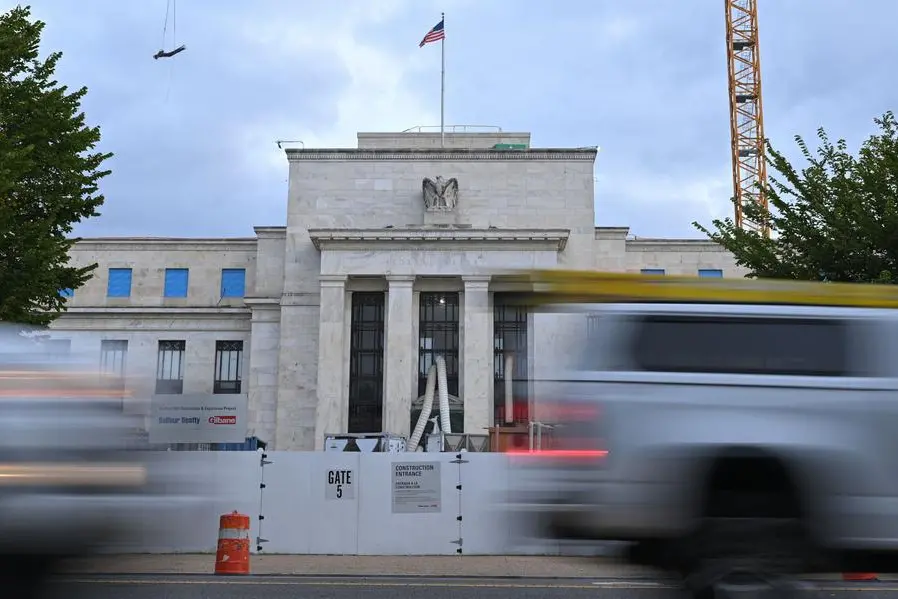PHOTO
GCC investors will be keenly tracking the probable decision by the US Federal Reserve to cut interest rates this Wednesday, which could lead to “significant opportunities” in emerging markets and foster growth in interconnected economies like the UAE, Saudi Arabia, and Qatar.
“An increase in the Fed rate typically strengthens the US dollar and can lead to higher yields on dollar-denominated assets. This might prompt GCC investors to reassess their exposure to such assets and potentially explore opportunities in regions where higher returns could be achieved,” Damian Hitchen, CEO of Saxo Bank MENA & APAC, told Zawya.
“Conversely, if the Fed decides to cut rates, which is widely expected at this meeting and going forward in the near-term, it may create a favourable environment for emerging markets and riskier assets. This shift could drive GCC investors to seek higher-return opportunities in these regions,” he continued, adding that diversification strategies will be crucial for GCC investors to mitigate risks and capitalise on new opportunities.
A Reuters analysts poll this month swung in favour of the Federal Reserve lowering interest rates by 25 basis points, citing that with inflation approaching the Fed’s 2% target and signs of an economic slowdown on the horizon, policymakers have been clear about reducing the federal funds rate, which has been held in the 5.25% to 5.50% range since July 2023.
In a report last month, research firm BMI said it expected GCC central banks, except for Kuwait, would cut their policy rates by 50bps in H2 2024 starting in September 2024, and by 200bps in 2025, in line with the US Fed.
According to Ehsan Khoman, Head of Research – Commodities, ESG and Emerging Markets (EMEA) at MuFG, Middle East banks have been one of the largest beneficiaries of rising rates within the emerging market banks space.
“[They are] given access to a sizable non-interest-bearing deposit base while loan books are primarily floating rate in nature,” he told Zawya. “Yet, in today’s looming lower interest rate environment, we believe the reverse holds, namely, regional banks with a tilt towards a sizable interest-bearing deposit base and fixed rate loan book could outperform.”
He continued: “Running a sensitivity analysis to a 25bps rate cut based on banks’ net asset repricing position over a 12-month period to gauge outperformers, we find that UAE and Qatari banks stand out given interest bearing deposits comprise - 50-65% of total deposits (on average) - and will reprice down in a lower rate environment to offset the impact from asset repricing.”
Wider impact
A report by the International Monetary Fund last week forecast the Fed rate cuts could help revive bond flows to emerging, developing economies in the long run. According to the report, with global interest rate conditions becoming more favourable for borrowers, this would support a recovery in Eurobond issuance and a broader revival of capital flows to emerging market and developing economies.
Saxo Bank’s Hitchen added it was reasonable to assume that as the US dollar weakened, GCC investors would shift focus towards emerging markets to capitalise on changing market dynamics.
“A weaker dollar often makes investments in emerging markets more attractive, as these regions may benefit from stronger local currencies and more favourable growth conditions. Emerging markets might offer higher returns compared to more mature markets, where growth opportunities are more limited. Therefore, GCC investors could potentially seek higher yields and diversification benefits in these regions,” he added.
There is also scope for wider domestic spending within the region that the GCC could further benefit from.
“A reduction in US rates, which leads to a reduction in UAE rates, will be beneficial to potential domestic spending and business cashflow for those with personal and corporate loan facilities. As global economic conditions evolve, GCC countries can leverage their own resources and capital to drive internal growth. Investing in infrastructure, technology, and innovation can enhance economic development and create new growth opportunities within the region,” Hitchen said.
“By fostering a favourable investment climate and encouraging private sector participation, GCC economies can harness domestic investments to build economic resilience and achieve long-term prosperity,” he added.
(Reporting by Bindu Rai, editing by Seban Scaria)




















